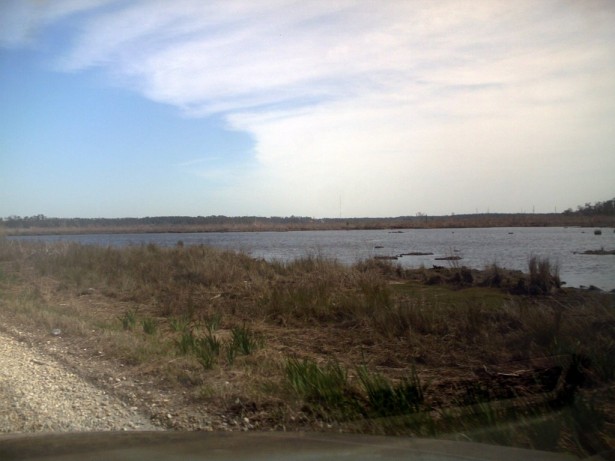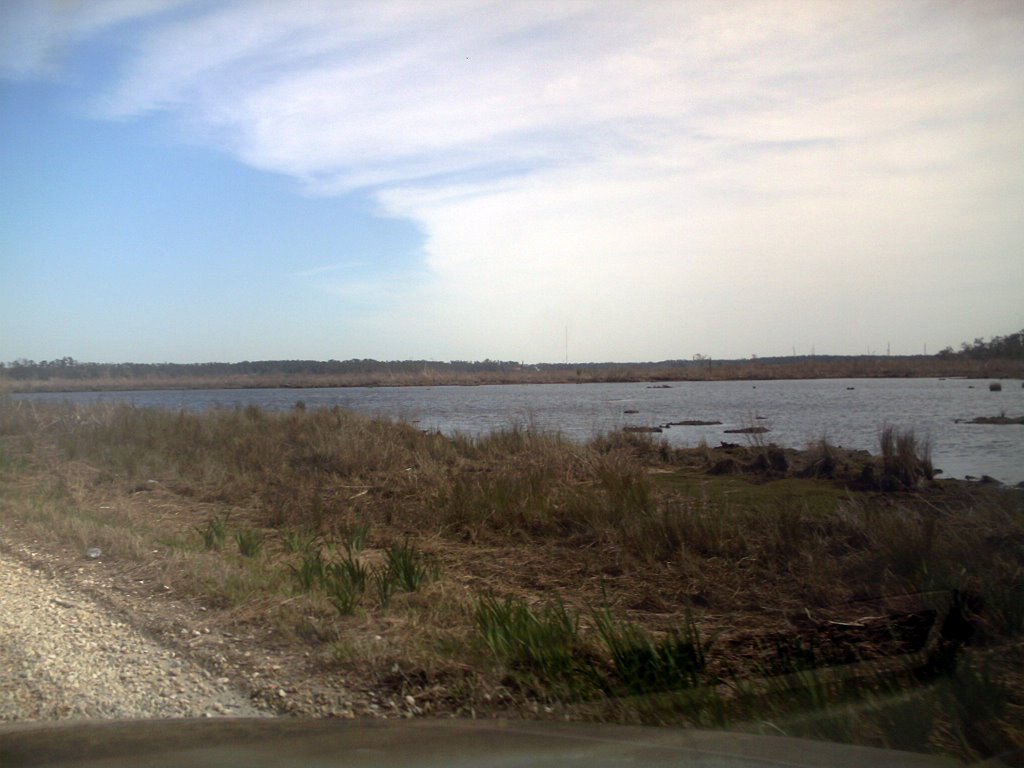 Louisiana’s threatened wetlands provide a critical barrier to hurricanes and flooding.With the anniversary of Hurricane Katrina approaching, a coalition of 17 advocacy groups called on the U.S. Army Corps of Engineers to promptly honor President Obama’s pledge “to restore nature’s barriers — the wetlands, marshes and barrier islands that can take the first blows and protect the people of the Gulf Coast.”
Louisiana’s threatened wetlands provide a critical barrier to hurricanes and flooding.With the anniversary of Hurricane Katrina approaching, a coalition of 17 advocacy groups called on the U.S. Army Corps of Engineers to promptly honor President Obama’s pledge “to restore nature’s barriers — the wetlands, marshes and barrier islands that can take the first blows and protect the people of the Gulf Coast.”
The MRGO Must Go Coalition held a press conference and media tour in New Orleans yesterday to highlight the slow progress in restoring wetlands east of the city along the Mississippi River Gulf Outlet, a navigation channel the Army Corps of Engineers constructed in the 1960s as a shortcut between the Port of New Orleans and the Gulf of Mexico.
When Hurricane Katrina blew ashore four years ago, MRGO directed wind-driven floodwaters into New Orleans and adjacent St. Bernard Parish, contributing to the catastrophic failure of levees and flood walls. Levees along the channel were breached in approximately 20 places during Katrina.
The channel’s construction, use and maintenance also caused the loss of more than 27,000 acres of surrounding wetlands, another factor that exacerbated Katrina’s impact on the New Orleans area. During the storm, levees protected by wetlands remained intact while those exposed to open water — like the ones along the MRGO’s banks — failed.
Congress ordered MRGO’s closure last year, and construction of a rock dam was completed last month. But the coalition points out that the dam is only the first step to protecting communities from storm surge.
Congress directed the Corps to develop a comprehensive closure plan that includes restoring adjacent wetlands with a deadline of last May — but the agency doesn’t expect to finish its MRGO Ecosystem Restoration Plan until next year. The coalition is urging faster action.
“There are good people at the Corps and at other relevant federal agencies who are trying to get their job done and quickly move these projects forward, but we need an unequivocal commitment from the Corps, Congress and other responsible agencies that they won’t let outdated bureaucratic procedures stand in the way of necessary action,” said Col. David Dysart, chief administrative officer for St. Bernard Parish. “It’s going to take creativity and breaking away from some long-standing ways of doing business, but the stakes call for nothing less.”
(This story originally appeared at Facing South)




